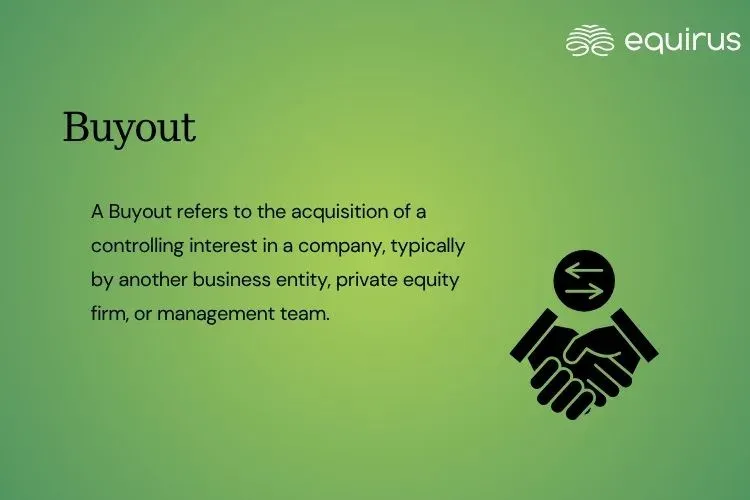Buyout

Key Highlights
-
A Buyout refers to the acquisition of a controlling interest in a company, typically by another business entity, private equity firm, or management team.
-
Types of buyouts includes management buyout (MBO), leveraged buyout (LBO) and institutional or strategic buyout.
What is Buyout?
A Buyout refers to the acquisition of a controlling interest in a company, typically by another business entity, private equity firm, or management team. The goal of a buyout is to gain strategic control, restructure operations, or unlock long-term value by taking the company private or reorganizing its capital structure.
Types of Buyouts
-
Management Buyout (MBO): Occurs when a company’s existing management team acquires ownership using financing from lenders or investors.
-
Leveraged Buyout (LBO): A transaction where the acquisition is financed largely through debt, with the acquired company’s assets often used as collateral.
-
Institutional or Strategic Buyout: Involves acquisition by institutional investors or corporations aiming for market expansion, operational synergies, or vertical integration.
Purpose and Strategic Rationale
Buyouts are often driven by objectives such as enhancing operational efficiency, realigning business strategy, or creating value through restructuring. For investors, buyouts present opportunities to generate high returns through active management and performance improvement of the acquired business.
Key Considerations
-
Financing Structure: Balancing debt and equity to maintain financial stability.
-
Valuation Accuracy: Determining a fair purchase price based on future cash flows and synergies.
-
Integration Planning: Ensuring cultural, operational, and strategic alignment post-acquisition.
-
Risk Management: Assessing leverage, market conditions, and regulatory implications.
